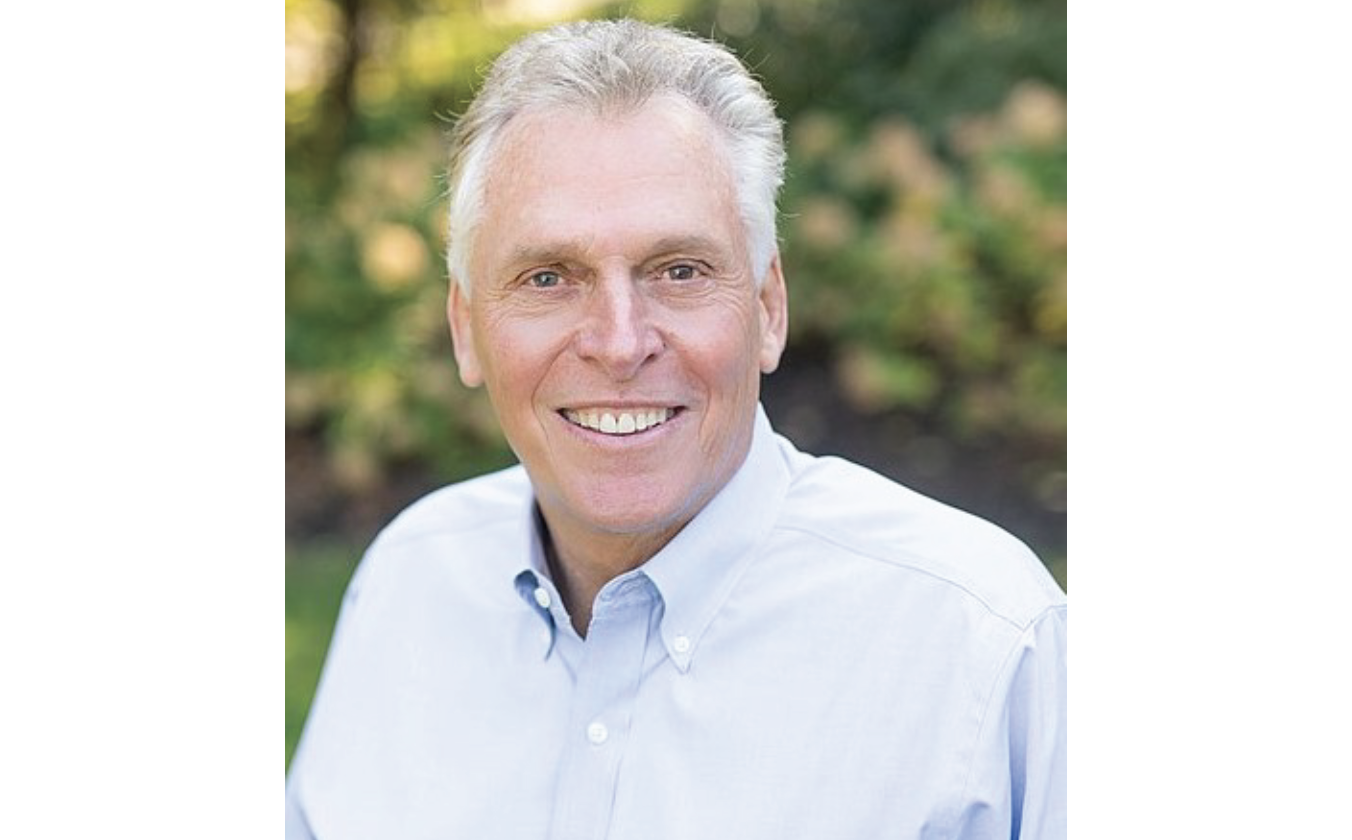Former governor Terry McAuliffe secured the Democratic party’s 2021 gubernatorial nomination in a landslide victory on Tuesday. McAuliffe won 62 percent of primary votes, finishing 40 points ahead of his closest challenger. The longtime Dem politico will run against Republican Glenn Youngkin in the fall for a chance to reclaim the office he held from 2014 to 2018.
Locally, McAuliffe won 60 percent of votes in Albemarle County, where Jennifer Carroll Foy finished a distant second, coming in at 23 percent. In the City of Charlottesville, McAuliffe finished at 42 percent, with Carroll Foy at 33 percent and Jennifer McClellan at 21 percent.
McAuliffe’s win in Charlottesville reflects just how far ahead of the pack he ran. In recent Democratic primaries, Charlottesville has chosen progressive challengers rather than well-known centrists. Local favorite Tom Perriello hammered Ralph Northam in the city in the 2017 gubernatorial primary, winning 80-20. In the 2020 presidential primary, Bernie Sanders won the city, and Joe Biden earned just 32 percent of the vote, 10 points behind McAuliffe’s 2021 tally.
McAuliffe’s camp will feel good about his chances in the general election. Republicans haven’t won a statewide election in Virginia since 2009.
Further down the ballot, Delegate Hala Ayala, who has represented Prince William County in the House of Delegates since 2018, won a six-way lieutenant governor race by a comfortable margin. If she wins in November, Ayala will be the first woman of color elected to a statewide office in Virginia. (The Republican lieutenant governor nominee would also tick that box—former House of Delegates member Winsome Sears is a Black woman.) Ayala has served as the House whip for the last two years, helping to shepherd some of the Democrats’ most important bills through the legislature.
Delegate Sam Rasoul of Roanoke beat Ayala in both Charlottesville and Albemarle, but finished a distant second statewide, earning 24 percent of the vote to Ayala’s 38 percent. Rasoul fashioned himself as a progressive voice and out-fundraised Ayala by a large margin, but Ayala’s strong performance in her home area of northern Virginia, coupled with influential endorsements from people like Northam and House of Delegates Speaker Eileen Filler-Corn, helped push her across the finish line.
McAuliffe wasn’t the only moderate Dem to beat a younger challenger. In the attorney general primary, Mark Herring, who’s running for his third term in office, beat Delegate Jay Jones 57-43.
Statewide, turnout in the primary was about 10 percent lower than the last Democratic gubernatorial primary in 2017, when Dems were energized in an unprecedented way by the election of Donald Trump the year before. This time around, 485,000 votes were cast, compared to 542,000 four years ago.
Closer to home
Charlottesville held a pair of local primaries on Tuesday. UVA planner Brian Pinkston and school board member Juandiego Wade won the party’s nominations for two open City Council seats in November. The odd man out was entrepreneur Carl Brown, who finished with 1,797 votes to Pinkston’s 3,601 and Wade’s 4,910. Pinkston and Wade will compete with independents Yas Washington and sitting Mayor Nikuyah Walker for two council seats in the fall.
When we spoke to both candidates ahead of the election, Wade said he hopes to work on issues like criminal justice reform, affordable housing, and public education if elected. Pinkston says his top priority will be to “inject a level of collegiality into the council.” Read our extended interviews with the candidates here.
Just like at the state level, Charlottesville’s incumbent top cop beat back a progressive challenger. Public defender Ray Szwabowski hoped to unseat Joe Platania, arguing that Platania’s office had handed out overly stringent punishments for a variety of infractions. Platania touted his work with the Virginia Progressive Prosecutors for Justice and his handling of the post-Unite the Right rally trial of James Alex Fields as reasons he should be reelected. Platania won 59-41. Read more about that race here.
Locally, the roughly 6,000 votes cast in Charlottesville in this year’s primary represents a significant drop from 2017, when more than 8,400 voters participated. Trump’s election, coupled with the presence of former 5th District representative Perriello on the ballot, may have been responsible for the historically high 2017 turnout. There was no primary in 2013, but in 2009, just 3,000 city residents participated in the primary.
General elections will be held on Tuesday, November 2.
